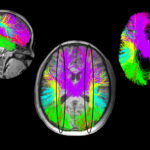Life after stroke: Rebecca’s fierce determination

Last July, Rebecca Gold’s parents, Karen and Adam, had just dropped her off at sleepaway camp in Pennsylvania. They hadn’t even completed the drive back to Connecticut when they received a frightening call: Their 12-year-old daughter had collapsed to the floor, vomiting and unable to move her limbs. She was now at a nearby children’s hospital in Delaware. After packing overnight bags and picking up their son, Jeremy, the couple turned around and headed back to meet Rebecca. “We didn’t realize it then, but we were leaving our home in Connecticut for good,” says Karen.
Looking for long-term care
In Delaware, Rebecca was diagnosed with a rare form of vasculitis, or inflammation of the blood vessels, which doctors determined had triggered not one but three strokes. Her speech, as well as her right arm and leg, were affected as a result. As they worked to contain the vasculitis with steroids and other medications, Karen and Adam began researching long-term care options closer to home.
“We had a great experience with the doctors in Delaware, but her case was so unusual,” Karen remembers. After researching their options, they determined that their best choice was Dr. Michael Rivkin, director of the Stroke and Cerebrovascular Center at Boston Children’s Hospital. She admits that they were a bit hesitant: “We knew that Rebecca would receive top notch medical care, but we wanted to be sure that she would receive the same level of personal attention that she received in Delaware. We were worried that Rebecca might be treated like a case study at an academic medical center,” she explains.

Brain and heart
Those concerns were put to rest upon meeting Dr. Rivkin. “He was so kind,” says Karen. “The whole team knew how to make us feel comfortable as soon as we met them.”
In Boston, Rebecca’s clinicians — including neurologist Dr. Miya Bernson-Leung and rheumatologist Dr. Robert Sundel created a treatment plan to control the vasculitis, prevent future strokes and enhance her recovery. The success of Rebecca’s care plan, along with her physicians’ knowledge of her rare condition, inspired the family to make Boston not just their destination for health care, but also their home. “We decided it was natural to relocate to Massachusetts,” says Karen. “We wanted to be closer to her care.”
Now, the Golds see Dr. Bernson-Leung most often. “She’s brilliant, but also extremely warm and compassionate — a wonderful combination of brain and heart,” says Karen, who appreciates the clinician’s patience. “The humanity of both Dr. Bernson-Leung and Dr. Rivkin has helped us become better caretakers for our daughter.”

New possibilities
Today, Rebecca — once a winning tennis player, black-diamond skier, pianist, violist and member of her school debate team — is still is adjusting to life after a stroke. “She has her bad days and doesn’t always give herself the credit she deserves,” says Karen. “But she’s already come so far.”
Indeed, Rebecca’s speech has improved dramatically. In addition to her structured work with her speech therapist, she enjoys singing along to her favorite songs and reciting poems she’s memorized. And although Rebecca still wears a brace to protect her ankle, she walks over a mile without a problem. She’s also about to start playing viola again, with the help of a very gifted and generous violinist who also plays adaptively.
“The stroke may prove to have closed some doors for Rebecca,” says Karen. “But her improving health, fierce determination and the amazing people that her new reality keeps presenting to her are opening many happy new possibilities as well.”
Related Posts :
-

Unveiling the hidden impact of moyamoya disease: Brain injury without symptoms
Moyamoya disease — a rare, progressive condition that narrows the brain’s blood vessels — leads to an increased risk of stroke ...
-

‘A lot better now’: Andrew’s recovery from Rocky Mountain spotted fever and a stroke
When Andrew was bitten by a tick in 2021, he and his parents could hardly have imagined that just a month ...
-

Lessons from Emma: Mom shares how RNS has changed their lives
Emma’s journey with the Epilepsy Center at Boston Children’s Hospital began three years ago when she came to ...
-

A model patient: Alexia’s triumph over moyamoya disease
If you’re lucky enough to get time on Alexia’s packed schedule, you’re in the company of a ...





